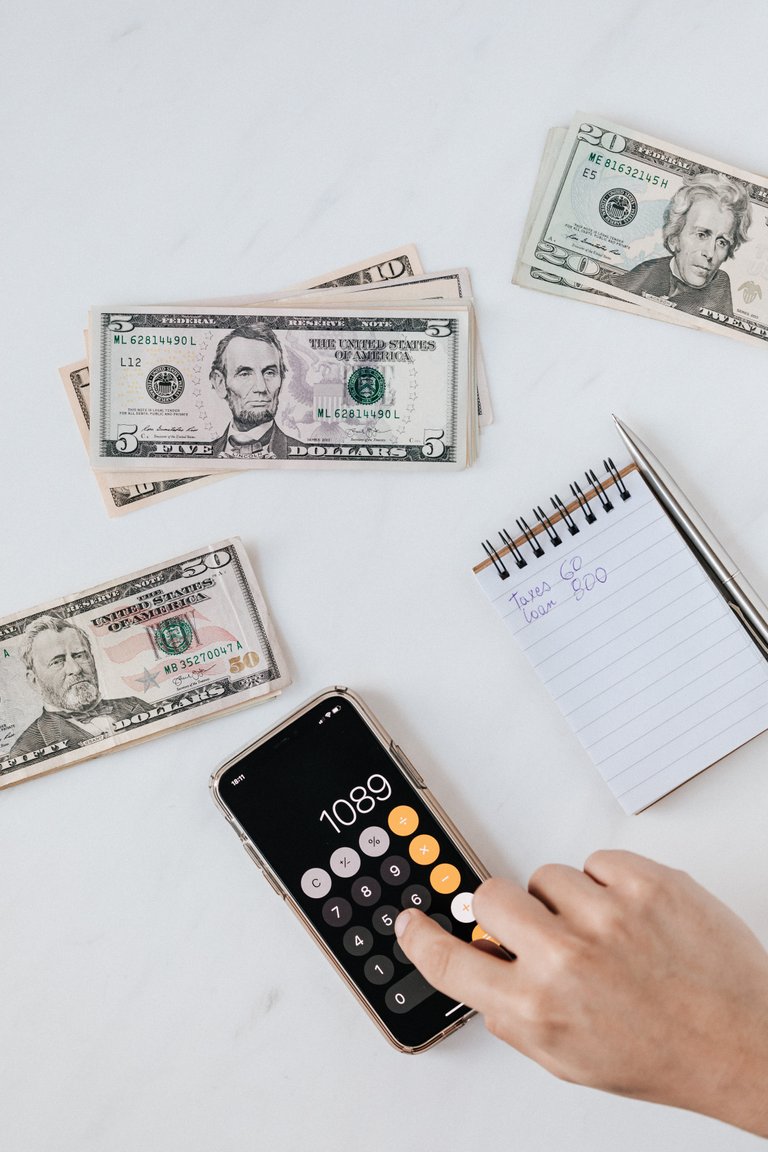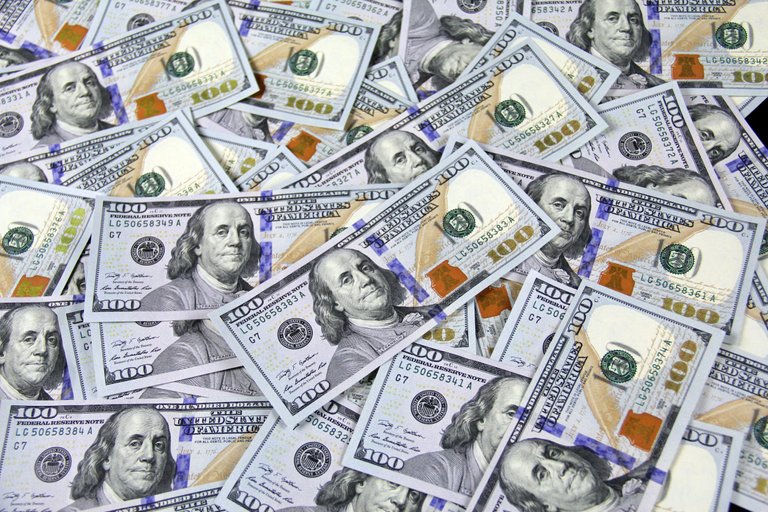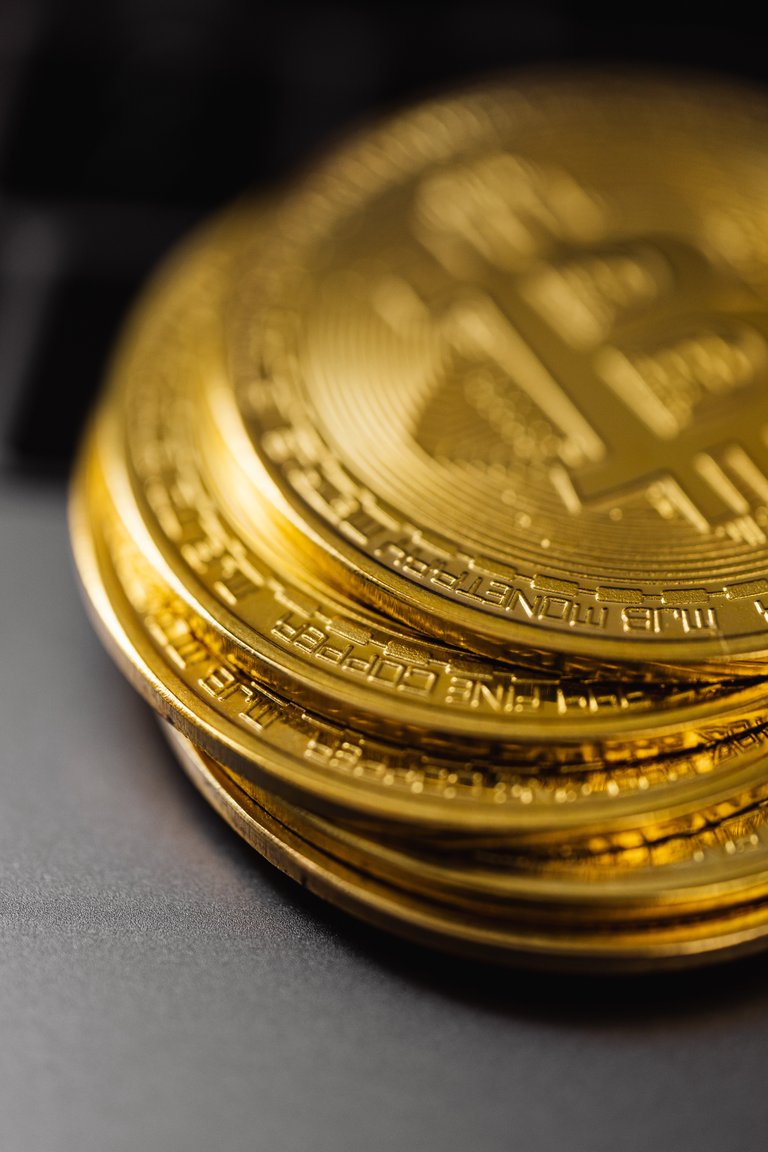THE RICH TELL THE POOR TO STOP BEING POOR
Checking Instagram today, I've noticed post of one of well-known Polish celebrities and millionaires, who was patronizing Poles and suggesting how to protest to keep their basic freedom and protect own wealth. She was doing it from the beach in Maldives.
Well... no. The world will not become fairer after drinking an extra glass of water or having a positive attitude. We live on a planet with huge socio-economic disproportions. The easiest way to become a billionaire is to be born a millionaire. Being born in the wrong place on Earth, having lower intellectual capital, worse access to education, and worse social connections, we are stuck in poverty.
In 2017, the 42 richest people in the world owned the same amount as 3.7 billion people, roughly half of the world's population. In 2018, the disproportions grew to such an extent that only the richest 26 people had wealth equal to half of the world's population. (1) Capitalism and the current economic structures causes the disproportion to grow. Currently, there ate bizarre situations that should never have happened - John Bezos, the richest man in the world, has a fortune 1.5 times bigger than the annual GDP of Ethiopia, a country with over 108 million citizens. (1) (2)
Additional 0.5% of the tax for all 2,200 billionaires worldwide, could sponsor the education of 262 million children, or provide healthcare that would save 3,3 million people from death.
In addition, research shows that the richest increases their fortune each year when the poorest half of the world only in 2018 decreased their fortune by 11%
Looking at these statistics, the idea of being successful and joining the elite club of billionaires with a positive attitude, mantras, and hard work seems like a cruel joke. Most of the billionaires never had to work. Sure, the anecdotes mention that for example Donald Trump as a child was encouraged by his father to collect bottles to learn how to respect money, but these are just anecdotes. In addition, very harmful, because they are not saying the whole truth and creating a myth that it is possible to achieve great fortune in the modern world starting from scratch. Presumably, this myth "from match seller to millionaire" was true in the past: in the US in post-colonial times, when a new country was being formed, globally probably after World War II, when society tried to rebuild itself after the devastation, locally in times of great transformations, such as in Poland during the democratization in the early '90s. In such short time windows, diligence combined with a huge dose of luck allows jumping from the middle class to the upper class. However, it is getting to be more difficult to find similar possibilities in the 21st century.Donald Trump, when he said the story about himself collecting bottles for sale as a child, did not mention that his father owned in that moment $ 250 million worth fortune. No matter if he would collect that bottles or not, he would be a millionaire.
Donald and others similar to him were privileged in their life in many ways that most people will never be:
1️⃣ He received the best education thanks to his father's money
While in North America and Europe, illiteracy is only 3% - in South America, it is 15%, in Asia 33%, and in Africa 50%. 263 million children (one in five) do not have access to any education, not even the most basic. The main reason is poverty. (3) Without the possibility to get proper education, these people are deprived of the prospects of finding a good job. In the case of illiterate people - often any work.
The privilege of the richest group is that none of the billionaires or even millionaires were born into a family that could not afford education.
Usually, this education was at the best level. People who study at Oxford or Harvard universities, through access to appropriate grants, scientific materials, research laboratories, or even social connections, have a much greater chance of success than those who obtained higher education in worse universities or who didn't get any degree.
2️⃣ He never had to worry about food
The comfort offered by financial security allows us to build our own careers and focus on increasing wealth. Today, 40% of the world's population lives on less than $ 2 a day. (4) When individuals have to focus on basic survival, and each day brings uncertainty as to whether they will be able to eat, there is no way to think about making the fortune. First of all, they do not have savings that could be multiplied, because all their earnings are used to ensure basic needs. Moreover, their entire attention and energy are focused on survival. Thinking about the future does not have sense if there might be no future if they won't fight each day for survival. People born as millionaires and billionaires have the comfort of security which makes them privileged and facilitates the multiplication of wealth.
3️⃣ He received money for the first business and expected inheritance in the future
Being born into a family of millionaires, billionaires, or even in upper-middle-class, provides some starting capital from the family. It can be money to support until we find the first job or, in some cases, money for the first business. This starting capital is often more than the other people can achieve with hard work for whole their lives.
Statistics show that 70% of people with assets of over USD 50 million (there are 168,000 such people in the world) come from the USA and Europe, i.e. from highly developed regions. (5) The overwhelming majority of them came from upper or upper-middle class.
The middle class is shrinking, and while promotion to the upper class and then to the richest 1% of humanity (that is, to the group with a fortune of at least 5 million USD) is still possible, it becomes more difficult each year. However, being born in a family with low economic status, promotion to the richest 1% is practically impossible. (6)
4️⃣ He had a safety cushion
We have a much greater chance to succeed in business when we are taking high investment risk. Research and common sense suggest that people who have more wealth or can count on the support of family members are more likely to risk losing capital. It is understandable that when there is a chance to make a lot of money but the risk of failure is high, people who do not have much savings are more likely to give up, protecting their hard-earned money.
Safety cushion that millionaires have meant that even if they will invest a lot of money in the business which will fail, they get another chance to try again and build the business from the beginning.
5️⃣ He knew the right people
The right connections are one of the most underrated factors when discussing someone else's career. Having the right friends who are ready to invest money, help in obtaining the appropriate permits, or promote the product is very important. The right people in our lives not only open up earning opportunities but also stimulate further education and increase intellectual capital. People studying in prestigious universities or born into a family of politicians or showbiz stars have a much better start than the children of the rural or rural-urban middle class.
An additional irritating is the role of Instagram, where I've read posts that made me angry. Instagram, according to many studies, is the most harmful medium that causes a lot of damage to our psyche. Being constantly compared with the richest, bombarded with photos of perfect bodies, tropical vacations, and expensive cars are destroying our self-esteem.
The #StatusofMind study showed that young people aged 16-25, who used Instagram frequently, struggled with anxiety, depression, loneliness, were more sleepy, had a bad opinion about their body image, and often felt bullied.
Images presented on Instagram favor people such as Kinga Rusin, whom I wrote about in the first paragraph. They completely distort the perception of the world by focusing on the richest and most beautiful 1% of people. This raises unreal expectations of reality and lowers our self-esteem, reducing our motivation to achieve our own goals. (7)
An idealistic solution and the role of Hive and other cryptos
In an ideal world, Utopia, in my opinion, economical disproportion still exists, but they are not that huge. Personally, I am not convinced of the idea of communism in which everyone is economically equal, nor of the idea of capitalism, which leads to the pathology of owning and storing by one person wealth greater than the GDP of entire countries. Economical disproportions are growing and in times of a pandemic, it is growing even faster.
In the COVID era, only 10 of the richest billionaires made an additional $ 540 billion in the last year. This is the amount that would be enough to produce and distribute the coronavirus vaccine free of charge to all people in the world. (8)
We need a new economic model, not based on capitalism or communism, but based on the foundations of humanism. Guaranteeing the dignity of every human being and the economic minimum, allowing for survival, but still stimulating to education, career-building, and self-development. It would be good if the motivator for this self-development was science, technological achievements that will positively affect the length and quality of our life, and not fortune and the production of unnecessary, perishable objects because this is an obstacle to overcoming the next crisis we are struggling with: the climate catastrophe. However, I will write about this another time.
Many people call me Morus, which comes from the short form of my surname. Let me, like in the past Tomas Morus, briefly present my own idea of the Utopian State - "Utopia of Morus". This vision is a form of a thought experiment and an opening of polemics. I would love to hear your comments and opinions - if you think it is not right, explain why in the comments. I will do my best to protect my idea. Perhaps we will be able to catch mistakes together and come to conclusions on how to improve them.
My new economic vision would be based on several assumptions:
1️⃣ Global minimum salary among UN countries
It is difficult to combat inequality in a world where the value of money and earnings vary from region to region. In the world, I understand as the ideal, rich West understands that the prosperity of their society does not come from the greater resourcefulness of people living in Europe and North America, but from the advantage that the colonization era and the plunder associated with it, finally the postcolonial exploitation of treating the poorer societies as factories for cheap labor, gave them.
Accordingly, the richest regions, as part of their historical responsibility, could accept the transfer of some budget resources to the poorest countries so that a global minimum wage could be set to end the exploitation of societies where cheap labor produces goods for the privileged.
Ideally, the minimum wage and all transfers should be made in one currency, necessarily unrelated to any country, so as not to reward one of the economies and not artificially create economic leaders. In this role, I see one of the cryptocurrencies, for example Hive.
2️⃣ Establishing a maximum salary
The storage of enormous wealth is detrimental to society, it makes it difficult to build general welfare and provide equal opportunities. On the other hand, the perspective of earning more money stimulates us in self-development, motivates us to conduct experiments and discover new things. The solution, from my point of view, is to establish a maximum wage by linking it to a minimum wage by percentage. This solution is already used in some form in some Scandinavian companies, where the highest-paid workers cannot earn more than six or ten times the lowest-paid workers. In such a situation, if the president of the company wants to increase his salary, he must first raise it for the people who work for him.On a national scale, a similar solution has not been introduced anywhere yet. The Swiss were close to making it, and they considered whether to legally define the highest salaries as 12 times the minimum salary, but the idea was reversed by the majority of the population in a referendum.
My postulate would assume to make it on a global scale. The extra money could be transferred to a special fund that would guarantee social assistance in less developed countries.
The ten richest billionaires earned $ 540 billion in 2020 alone. With a system in which the amount of their salary would be tied to the minimum wage, and investments in the company would be burdened with high taxes, they could probably earn 1 million dollars (i.e. as much as Jeff Bezos currently earns per 25 minutes - based on the Forbes 2020 and 2021 lists) and spend another half a billion on company improvements. The remaining 539,5 billion allocated to all of mankind is over $ 67 per person.
BUT... There are 2200 billionaires in the world, not only 10 of them. They all earned in 2020... 1,9 trillion dollars! That's 237,50 USD per person all around the globe.
Now take a look at the richest 1%. Their capital is, for the most part, between 5 and 50 million with average earnings of 850,000 per year. 2/3 of this (375 USD per year per person) would be allocated to a guaranteed salary for the poorest. Merely taxing the richest 10% of the people and limiting their annual profits would give every inhabitant of the planet $ 612,50 a year. If we channel this profit to 50% of the world's poorest citizens, everyone could get 1225$ a year. Today, the poorer 40% of the population lives on less than $730 per year, so this form of income support would double their profits.
The average income per year - now and in a perfect world
| % | economic class | now | after |
|---|---|---|---|
| 0.0003% | very rich | 53 500 000 000$ | 275 000$ |
| 10% | rich | 850 000$ | 275 000$ |
| 20% | upper middle class | 12000$ - 850 000$ | 12 000$ - 275 000$ |
| 30% | lower middle class | 730$ - 12000$ | 12000$ |
| 40% | poverty | up to 730$ | 12 000$ |
3️⃣ Linking the minimum salary to the average salary
An additional factor to regulate the earning disproportions would be the combination of the minimum salary with the average salary. Assuming that the law described in the previous point, stating that the maximum wage may be up to 12 times the minimum wage, would work, it is worth establishing additional law which says the minimum wage cannot be less than 1/3 of the median earnings. In this way, we avoid excessive exploitation of the working class and motivate employers to invest in workers.
Of course, it comes with self-limitation. The cost of producing goods would increase significantly, the West would have to stop using cheap labor in Asia, and as a result, the average European or American could afford much less than today, but poverty would be almost eliminated.
4️⃣ Guaranteed salary of 10% of the minimum wage, sufficient to provide basic food
Guaranteed wages are currently (or were recently) widely discussed in some European societies (Scandinavia, the Netherlands, Switzerland) and around the world (Argentina, Namibia, Canada). The guaranteed salary assumes that anyone who requests it is granted a basic amount, ensuring survival security. In principle, the money should be enough for basic food. From the perspective of many of the poorest countries, this form of social assistance seems difficult to imagine, but with greater egalitarianism, I believe that it would be possible to introduce it in a limited form globally.
Finland assumed the possibility of paying 560 euros a month, Italy 780-1330 euros a month per family, in Spain there was an experimental program that provided participants with a payment of about 500 euros per month. All these programs assume that the guaranteed wage should be around 25-35% of the minimum wage. Profits are derived from social transfers, removing other benefits, raising taxes (I am proposing the above-mentioned tax increase for the richest), increasing revenues to the state budget by increasing consumption. Research has shown that the Basic Salary does not increase inflation as it does not involve printing money.
Assuming a global project and aid for less wealthy countries, the guaranteed salary could be reduced to 10% of the minimum wage. (9)
5️⃣ Guaranteed salary payments correlated with the cryptocurrency system
After all, the point that is the least utopian, the easiest to implement - the popularization of cryptocurrencies, especially hive, especially among the 50% of the most disadvantaged people. Hive allows you to earn basic income that allows you to survive. However, for it to become a common form of providing financial security to people in need, we must face several challenges:
- increase access to education and combat illiteracy in the poorest regions
- educate the society on how to use computers and the Internet
- provide basic access to electricity, computers, and the Internet by building social internet cafes or providing free wifi in smaller towns (Argentina is a great example of how to do this)
- popularize platform
- simplify the use of hive, make it easy to use for people of all ages and education
The ideas presented are just some thoughts that popped into my head. I am not an economist or a philosopher, so I admit that they are full of errors.
Thanks for reading,
@papi.mati










no comment on this post, and just 0.26 for rewards. ok. 🤔 ps. I wanted to ask, if you let me the question -- are you Polish?..
Yes, I am, although I live in Argentina now
We already chewed up that. (It was reading this post, that I got the feeling you are Polish). See you later on discord, and S-T ✌️
!BEER